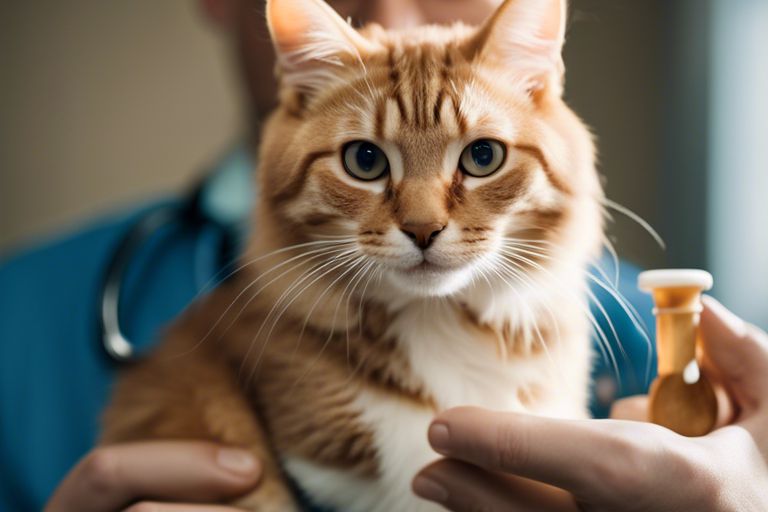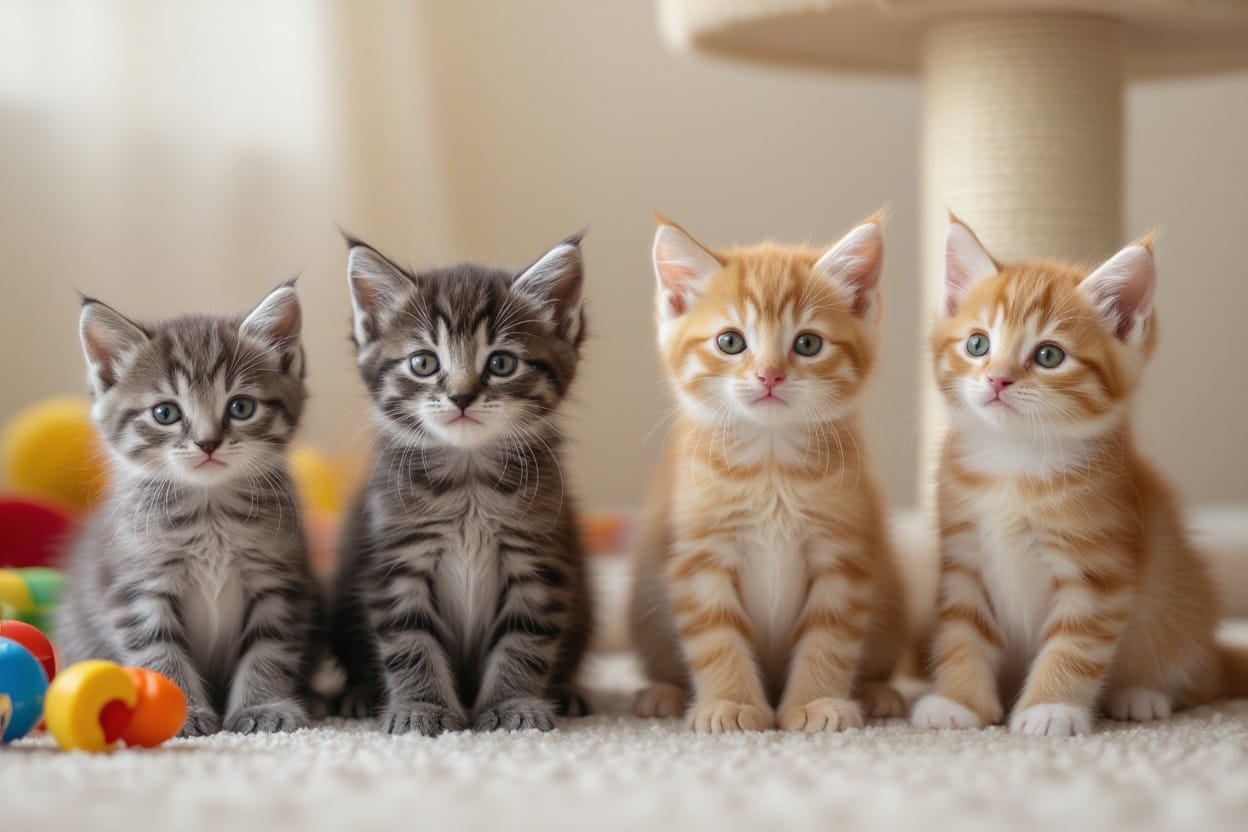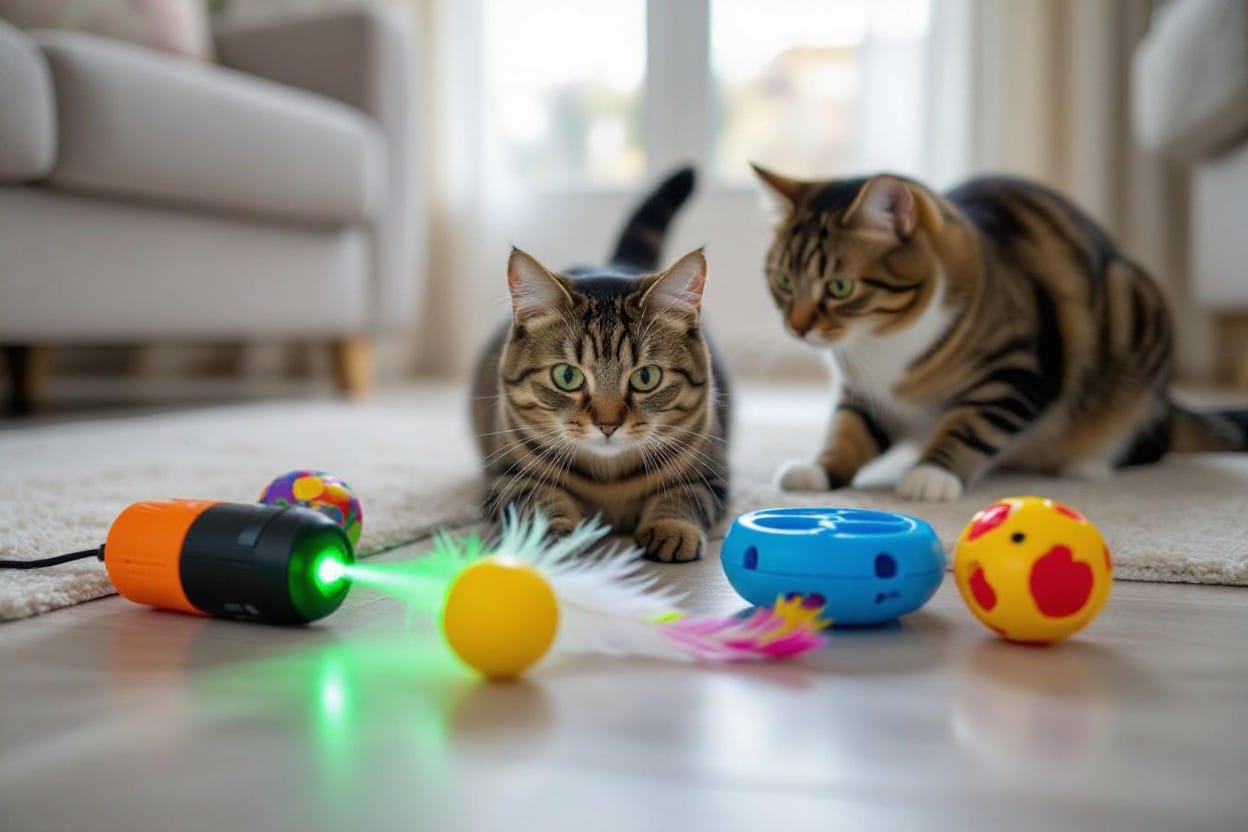You love your feline friend and want to ensure they lead a healthy and happy life. One way to achieve this is by being aware of common cat health issues that may arise and taking steps to manage or prevent them. By staying informed and proactive, you can help your cat live a long and thriving life.
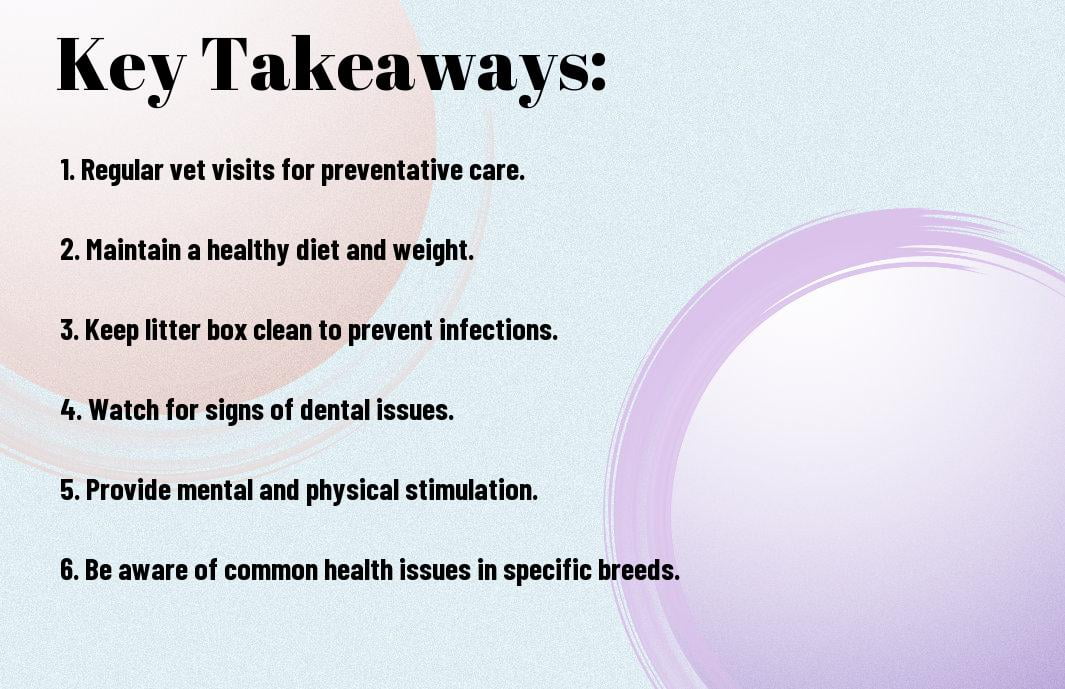
Nutrition and Diet
Essential Nutrients for Cats
For your feline friend to thrive, it is imperative to provide a well-balanced diet that includes all necessary nutrients. Cats require protein, taurine, vitamins, minerals, and fats for optimal health. Protein, sourced from meat, is crucial for maintaining healthy muscles and tissues. Taurine, an amino acid found in meat, is imperative for heart health and good vision in cats. Additionally, vitamins like A, C, and E, along with minerals such as calcium and phosphorus, play vital roles in maintaining overall health.
Common Dietary Problems and Solutions
With proper nutrition being a cornerstone of cat health, it’s important to address common dietary issues that may arise. Hairballs, obesity, and urinary tract problems are some common concerns related to diet in cats. Hairballs can be reduced by incorporating fiber into the diet or using specialized cat foods. Obesity can be managed by feeding controlled portions and promoting exercise. Urinary tract problems may be alleviated by increasing water intake through wet food or a water fountain.
Problems such as allergies and sensitivities to certain ingredients can also affect a cat’s health. If you suspect your cat has dietary issues, consulting with your veterinarian to determine the root cause and modify their diet accordingly is crucial. Bear in mind, a well-informed approach to your cat’s nutrition can help prevent common health issues and ensure they lead a happy and healthy life.
Parasite Control
Fleas, Ticks, and Mites
Control of fleas, ticks, and mites is crucial for maintaining your cat’s health. These parasites not only cause discomfort and skin irritation but can also transmit diseases. Regularly check your cat for any signs of infestation, such as excessive scratching or visible parasites on their fur. Consult with your veterinarian to determine the best prevention methods, including topical treatments, collars, or oral medications.
Heartworms and Intestinal Parasites
Heartworms are a serious health concern for cats, as they can lead to severe respiratory and cardiovascular issues. Intestinal parasites, such as roundworms and hookworms, can also cause gastrointestinal problems and nutritional deficiencies in cats. It is imperative to follow your vet’s recommended deworming schedule and administer preventive medications regularly to protect your cat from these internal parasites.
For instance, heartworm preventives often include protection against common intestinal parasites, offering comprehensive coverage against a range of internal parasites. Regular fecal testing can help detect any underlying parasitic infections early on, allowing for prompt treatment and better health outcomes for your cat.
Vaccination and Preventive Care
Core Vaccines for Cats
To ensure the overall health and well-being of your feline companion, it is crucial to stay up to date on their vaccinations. Core vaccines are necessary for preventing common and potentially deadly diseases such as rabies, feline panleukopenia, feline herpesvirus, and feline calicivirus. These vaccines are considered vital for all cats, regardless of their lifestyle or environment.
Schedule for Routine Vet Visits
Vaccines are necessary, but routine veterinary visits are equally crucial for monitoring your cat’s health and detecting any potential issues early on. Your veterinarian can tailor a vaccination schedule based on your cat’s lifestyle, age, and risk factors. Generally, kittens require a series of vaccinations starting at around 8 weeks of age, followed by boosters at regular intervals.
Dental Health
Recognizing Dental Diseases in Cats
Any responsible cat owner should be aware of the common signs of dental diseases in their feline companions. These can include bad breath, swollen or bleeding gums, yellow or brown tartar build-up on the teeth, pawing at the mouth, difficulty eating, and excessive drooling. If you notice any of these symptoms, it’s important to consult your veterinarian for a proper diagnosis and treatment.
Preventive Dental Care Strategies
Health is an important aspect of your cat’s overall well-being, which includes their dental health. Preventive dental care for cats can significantly reduce the risk of developing dental diseases and ensure your feline friend maintains a healthy mouth. This can involve regular teeth brushing with cat-specific toothpaste, providing dental treats or toys designed to promote dental health, and scheduling annual dental check-ups with your veterinarian for professional cleanings and examinations.
Dental disease in cats can lead to various health issues if left untreated, such as tooth loss, infections, and even heart or kidney problems. By incorporating preventive dental care strategies into your cat’s routine, you can help them avoid painful dental conditions and improve their overall quality of life.
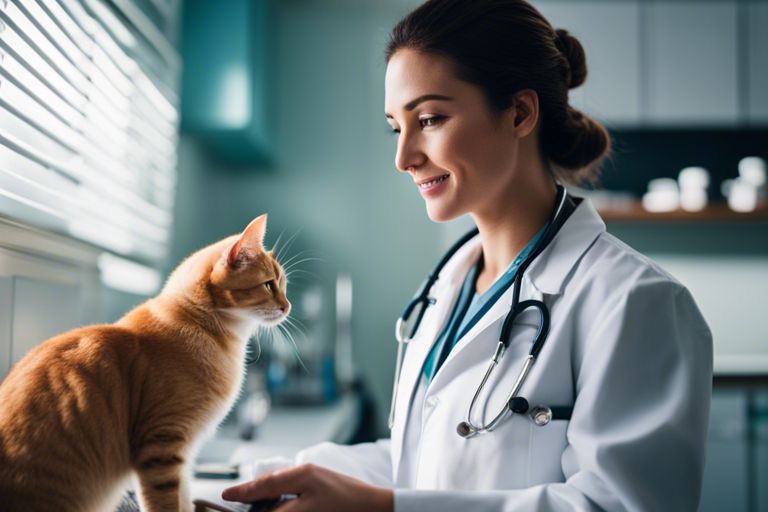
Behavioral Issues and Mental Health
Stress-Related Disorders in Cats
All cats can experience stress at some point in their lives, and it can manifest in various ways. Common stress-related disorders in cats include anxiety, depression, and compulsive behaviors. Changes in the environment, routine, or social interactions can all contribute to a cat experiencing stress. It is important for cat owners to be observant of any behavioral changes that might indicate stress, such as excessive grooming, aggression, or withdrawal.
Enrichment Strategies to Promote Well-being
To ensure the mental well-being of your cat, it is crucial to provide enrichment strategies that stimulate their natural instincts and keep them mentally engaged. Enrichment activities can include puzzle toys, interactive feeders, climbing structures, and window perches. These activities promote physical exercise, mental stimulation, and can help prevent behavioral issues that stem from boredom or frustration.
The mental health of a cat is just as important as their physical health. By incorporating enrichment strategies into their daily routine, you can help prevent stress-related disorders and promote a happy, healthy feline companion.
Chronic Conditions and Age-Related Health Concerns
Once again, as our feline companions age, they become more susceptible to chronic conditions and age-related health concerns. Two common issues that cat owners may encounter are kidney disease and diabetes.
Managing Kidney Disease and Diabetes
Kidney disease is a common condition in older cats and can lead to a range of health problems if not managed properly. Symptoms may include increased thirst and urination, weight loss, and a lack of appetite. To help manage kidney disease in cats, it is necessary to work closely with your veterinarian to develop a treatment plan that may include a special diet, medications, and regular monitoring of kidney function.
Approaches to Arthritis and Mobility Issues
Conditions such as arthritis can affect cats as they age, leading to mobility issues and discomfort. Signs of arthritis in cats may include limping, reluctance to jump or climb stairs, and changes in grooming habits. To help improve your cat’s quality of life, it is important to provide them with a comfortable environment that is easy to navigate. Additionally, your veterinarian may recommend supplements, medications, or specialized diets to help manage arthritis and mobility issues in older cats.
Managing arthritis and mobility issues in aging cats requires a multifaceted approach that may include weight management, providing soft bedding, encouraging gentle exercise, and incorporating environmental modifications to make it easier for your cat to move around the house.
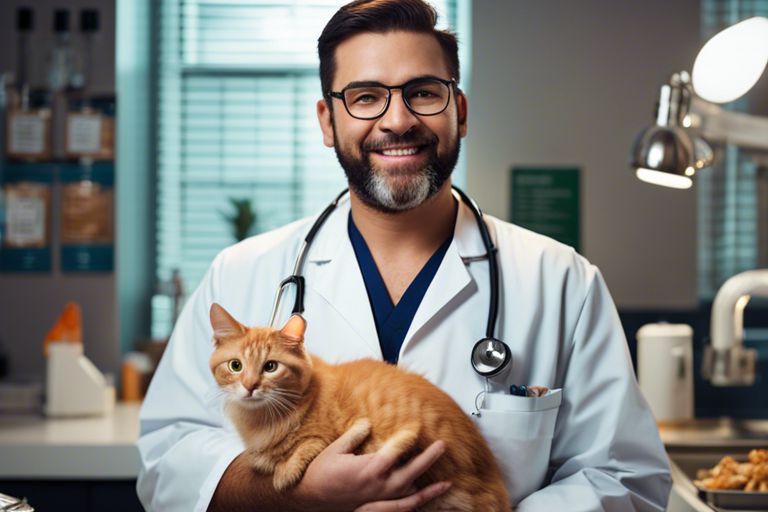
Emergencies and First Aid
Identifying Common Cat Emergencies
On occasion, cats may face emergencies that require immediate attention. It’s crucial for cat owners to be able to identify these emergencies to provide the necessary care promptly. Common cat emergencies can include poisoning, respiratory distress, seizures, and severe injuries. If you notice any unusual behavior or symptoms in your cat, it’s vital to contact your veterinarian or an emergency animal clinic right away.
Basic First Aid for Cats
Cats can sometimes get into situations where they require immediate first aid before they can be taken to a veterinarian. Basic first aid for cats may include cleaning and bandaging wounds, administering medication, and providing CPR if necessary. It’s important for cat owners to have a basic understanding of first aid techniques so they can effectively assist their feline companions in times of need.
Understanding the fundamentals of first aid for cats can make a significant difference in the outcome of an emergency situation. By being prepared and knowledgeable, cat owners can provide critical care to their cats while awaiting professional veterinary assistance.
Summing up
From above discussions, it is evident that managing and preventing common cat health issues requires a comprehensive approach that includes regular veterinary check-ups, proper diet, hydration, exercise, and a clean living environment. Being aware of the common health issues that affect cats, such as dental problems, obesity, and urinary tract infections, allows pet owners to take proactive steps to prevent these issues from arising.
By staying informed about the specific needs and vulnerabilities of cats, pet owners can create a healthy and balanced lifestyle for their feline companions. It is imperative to prioritize preventative care and address any health concerns promptly to ensure that cats can enjoy a long and happy life. With proper attention and care, many common cat health issues can be effectively managed or even prevented altogether.
FAQ
Q: What are common health issues that cats may face?
A: Common health issues that cats may face include dental problems, obesity, urinary tract issues, upper respiratory infections, and parasitic infestations.
Q: How can I prevent dental problems in my cat?
A: You can prevent dental problems in your cat by regularly brushing their teeth, providing dental treats or toys, and scheduling regular dental cleanings with your veterinarian.
Q: What are the signs of obesity in cats?
A: Signs of obesity in cats include difficulty moving, excessive sleeping, a round or bulging abdomen, and the inability to feel your cat’s ribs easily.
Q: How can I help prevent urinary tract issues in my cat?
A: You can help prevent urinary tract issues in your cat by providing fresh water at all times, feeding a balanced diet, keeping the litter box clean, and promoting regular exercise.
Q: What is the best way to protect my cat from parasitic infestations?
A: The best way to protect your cat from parasitic infestations is by using monthly flea and tick preventatives, regularly deworming your cat, keeping their living area clean, and scheduling routine check-ups with your veterinarian to monitor their overall health.
